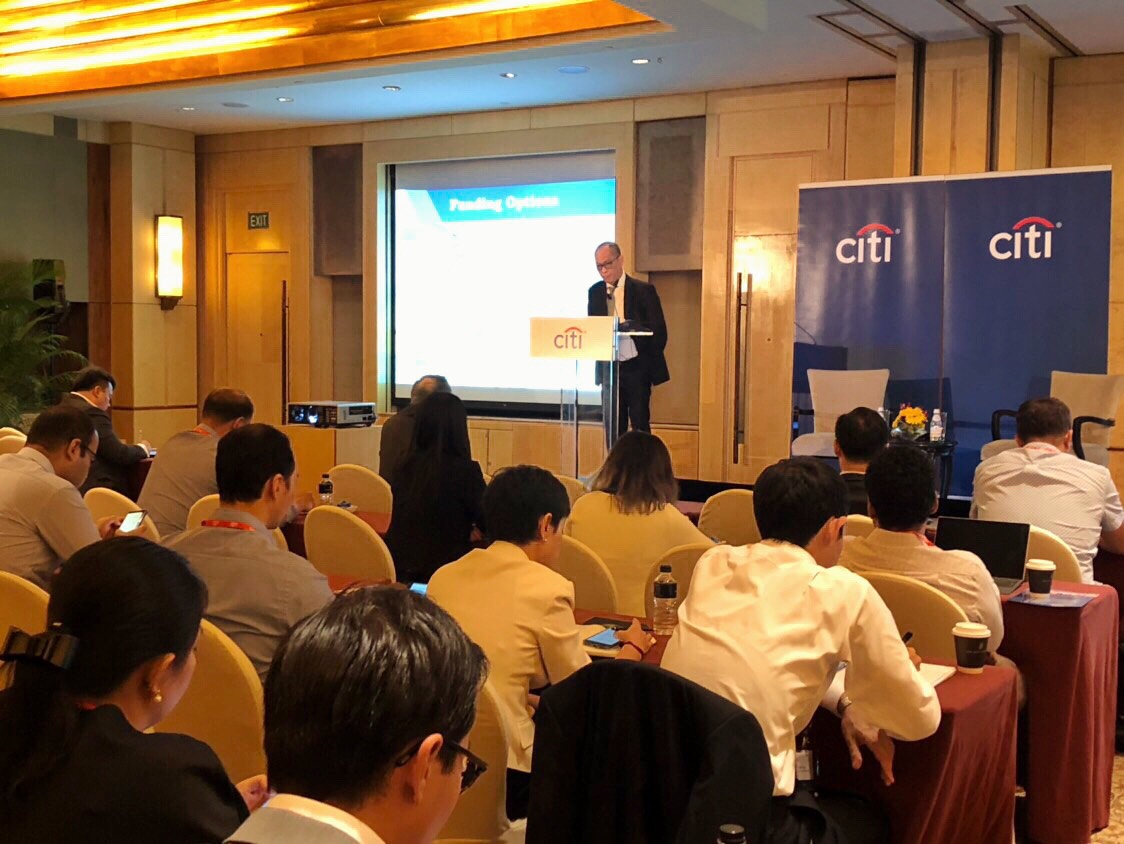
SINGAPORE- DBM Secretary Benjamin Diokno presented the Build Build Build infrastructure program to investors and corporates from various countries, during the ASEAN C-Suite Investor Conference held in Singapore on June 26, 2018.
Investors were eager to gain insights into the Philippines’ infrastructure plans, especially the lineup of projects, financing strategies, economic implications, and challenges. As such, Secretary Diokno discussed the government’s funding options including local funding, Public-Private Partnerships (PPP), Unsolicited Proposal subject to Swiss Challenge, and Official Development Assistance (ODA). The Budget Chief also elaborated on the details of some big-ticket projects that are up for implementation and completion within the next few years, which consist of the Metro Manila Subway Project and the Clark Airport Expansion, among many others.
Secretary Diokno further noted that the government is adopting hybrid-PPP, where the government is in charge of the selection, financing, bidding, and construction, and once completed, will bid the projects to the private sector for operation and maintenance.
“The Philippines is very much open to investments and partnerships from the private sector and from other countries. In fact, the Philippines has already secured commitments from countries such as China and Japan for ODAs on several infrastructure projects,” the Budget Secretary highlighted.
He also explained two other differences between the project approval and financing arrangement under this administration and the previous administration. “First, we now accept unsolicited proposals, subject to Swiss challenge. The previous administration doesn’t; all projects have to be hatched inside,” said Secretary Diokno.
“Second, we do not approve of using the PPP project as a way of raising resources for the government. The previous administration would grant a project to a proponent who can offer the highest premium. That’s tantamount to taxation without representation. It’s a sure guarantee that the user of a facility will be charged much higher than the full costs of the project,” he added.
And for the construction of government offices and buildings, including Philippine embassies abroad, Sec. Diokno noted that the preferred modality is Build-Lease-Transfer. In this type of PPP setup, a private company constructs the project or facility, then leases it to the government, run and maintain the facility, then transfer ownership to the government after the lease period.
“We believe that such a mechanism is more efficient, more economical, and more sustainable,” he explained.
“With our expansionary fiscal policy and this bold Build Build Build program, we assure you that there is no slowing down for us. We will continue this momentum. We are committed to transforming the Philippines into the next investment hub of Southeast Asia,” the Budget Chief concluded.

